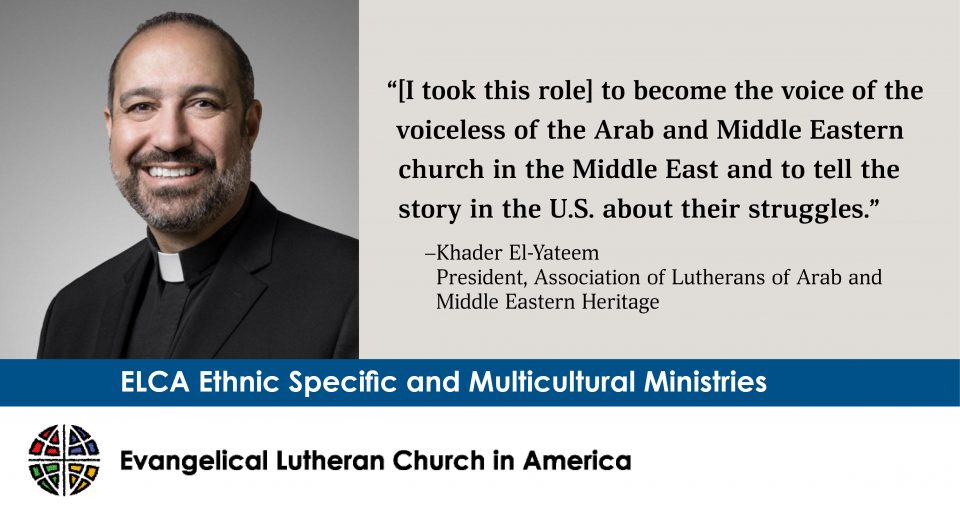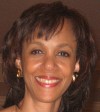Editor’s note: Each ELCA Ethnic Specific and Multicultural Ministry has developed a mission strategy unique to its needs and aspirations. In this monthly series, we will feature the presidents of each ELCA Ethnic Specific and Multicultural Ministries association and highlight their work around cultural diversity and anti-racist action.
Growth and advocacy: these are the top priorities of the ELCA Association of Lutherans of Arab and Middle Eastern Heritage, said its president, Khader El-Yateem. He wants to see more Lutherans “walk the talk.”
Elected in 2017, El-Yateem assumed the post in part “to become the voice of the voiceless of the Arab and Middle Eastern church in the Middle East and to tell the story in the U.S. about their struggles, about their strong witness in very difficult situations in various countries in the Middle East,” he said.
The association represents about 3,000 Arab and Middle Eastern Lutherans in the United States and has targeted Chicago, California, Florida and New York for growth, El-Yateem said. It includes two Arab and Middle Eastern ministries: Salam Arabic Lutheran Church in Brooklyn, N.Y., which El-Yateem founded 23 years ago and where he previously served as pastor, and Mother of the Savior Lutheran Church in Dearborn, Mich.
Strengthening existing congregations—which can face challenges—is also a central focus.
“They are congregations mainly with new immigrant and refugees, so there are a lot of demands,” said El-Yateem, director for evangelical mission and assistant to the bishop in the Florida-Bahamas Synod. “They don’t speak the language. Our job as pastors is to help these new immigrants. They don’t have a lot of financial resources to support the church. They come here. They work. They have to support their families.”
“For us as a church, we have a great opportunity to accept them, to practice the ministry of hospitality. It’s a chance for us to welcome them into our congregations.”
Immigrants also face cultural issues. They “don’t understand what it means to be a member in a church,” said El-Yateem, who was born in Bethlehem and immigrated to the United States in 1992. “It is a growing process where people have to be educated. To serve on council, to be a minister, is a foreign concept. Our duty and job is to educate them.”
The association’s advocacy has been concentrated on helping immigrants and refugees from the Middle East and other countries.
“We’re engaged and involved with different groups to make sure our voice is heard … to represent the community and tell their stories in different congregations,” El-Yateem said. “We have been intentional [about being] present at different synod assemblies so we can speak about the issues of immigrants. During the [ELCA] Youth Gathering we had board members fly there to be volunteers to help educate the youth about the issue of immigration and refugees and the peace process among Israelis and Palestinians.”
El-Yateem wants ELCA congregations to understand that these immigrants “do not want to leave their homes, but they are forced out because of the political situations or the economy or bad regimes. … Their lives are in danger.”
“For us as a church, we have a great opportunity to accept them, to practice the ministry of hospitality,” he added. “It’s a chance for us to welcome them into our congregations.”
El-Yateem noted the importance of statements issued by ELCA Presiding Bishop Elizabeth Eaton on the Trump administration’s family separation policies, as well as the work ELCA Advocacy has done related to the issue. But he hopes to see such statements and advocacy prompt action in congregations. “My call to the whole church is to help our local congregations live out these statements in their daily lives in their relationships with their neighbors,” he said.





